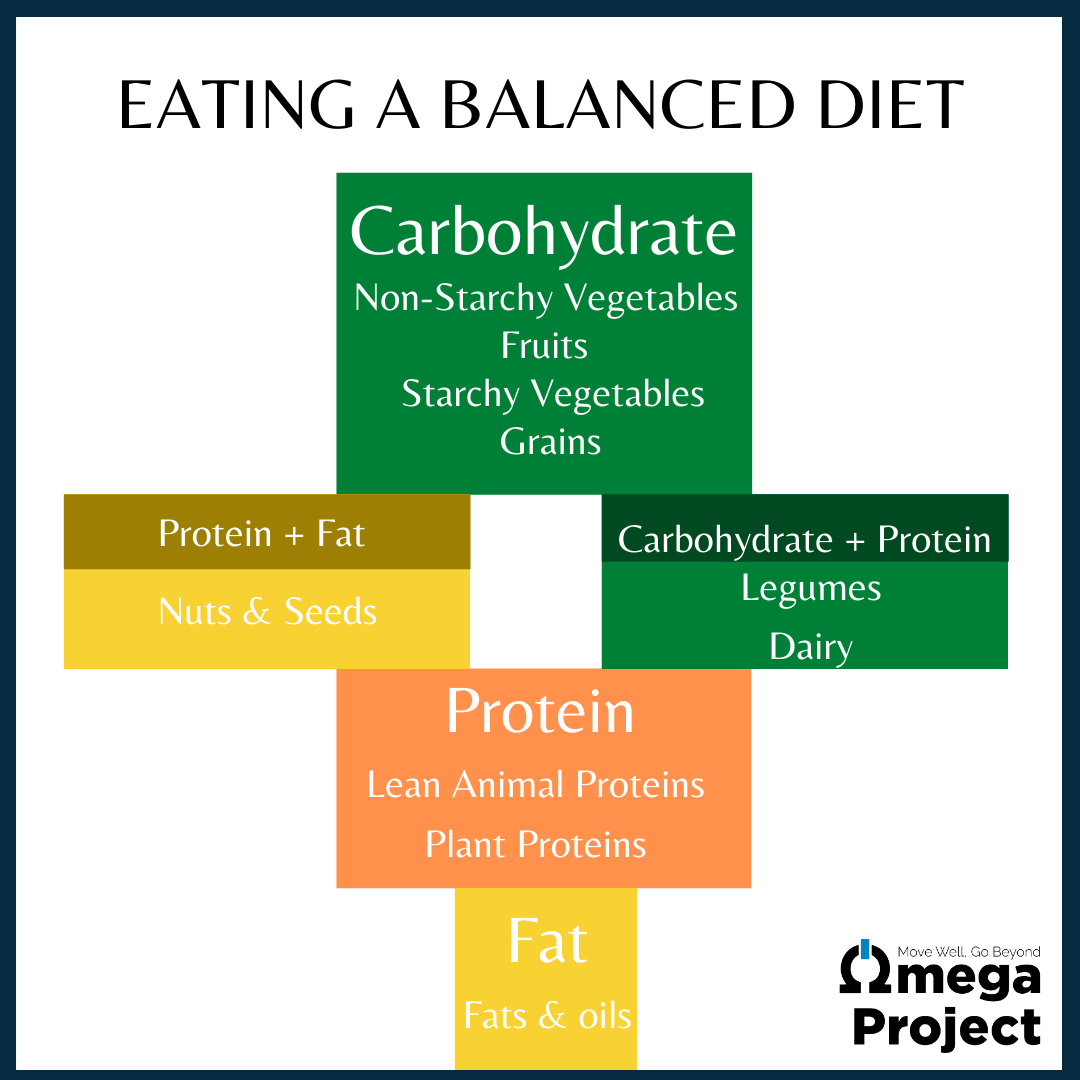What does it really mean to eat a healthy, balanced diet? When talking about a balanced diet in the “functional nutrition” world, this is a diet appropriate to your specific lifestyle, health concerns and food preferences. What does this mean?………
THERE IS NO ONE SPECIFIC DIET FOR EVERYONE!
All diets, food plans and lifestyle plans should be tailored to the individual to improve overall health and well-being.
With all of this being said, there are some general guidelines to follow to help create a sense of “balance” in your diet. When you consume the appropriate amount of macronutrients (protein, fat and carbohydrates), the body is supplied with everything it needs to function properly.
The graphic above shows the breakdown in a distribution of:
- 25% protein
- 30% fat
- 45% carbohydrates
This distribution is for anyone looking to eat a healthy, balanced diet. Again, different macronutrient distributions will help to achieve different health results, so talk to a healthcare provider when trying to determine your specific food/diet plan.
You also don’t need a specific diet/food plan to start eating a balanced diet now! Here are some great tips for balancing your current diet:
- Stay Hydrated : As a rough estimate, to determine the amount of water and other fluids you should consume daily, take your body weight in pounds and divide by half. To help you stay hydrated, try carrying a water bottle with you wherever you go!
- Set SMART goals : Let’s just say, you don’t like vegetables or you have been eating fast food for years, shifting to a diet of whole, fresh foods can be a challenge. Set yourself up for success by setting SMALL, ATTAINABLE goals. Small, realistic changes over time are easier to implement, and are more likely to stick than a huge, dramatic change made suddenly.
- Don’t skip the protein : Protein helps to build and repair EVERY aspect of the body. Without enough protein, you can start to feel run down, lethargic and weak.
- Eat plenty of health fats : Healthy fats help to support brain and heart health also while keeping you feeling full and providing energy. When looking at healthy fats, shoot for more omega-3s (avocados, fatty fish, nuts & seeds, olives, etc) and less omega-6s (processed foods, salad dressings, processed oils). Also, keep in mind that low-fat and fat-free products contain a large amount of added sugar and artificial fillers, which you want to avoid or limit when trying to eat balanced.
- Opt for carbohydrates from vegetables : Many whole foods like fruits, vegetables and legumes fall into the category of carbohydrates, not just breads, pasta and grains. When consuming larger amount of carbohydrates from vegetables, you are also consuming larger amounts of fiber, which helps to balance blood sugar and improve digestion.
- Eat the rainbow : We function best when we consume nutrients from all different sources and colors. Aim to eat at least 5 different colors of fruits and vegetables each day.
- Experiment in the kitchen : Play around with different foods and ways of cooking. Maybe try 1 new recipe every week.
- Limit sugar and processed foods : It has been found that excessive intake of refined sugars and grains can contribute to the development of many different chronic health issues. In order to starve off illness, limit your intake of refined sugars and grains. Both of these things can be found in highly-processed foods.
- Everything in moderation : Part of eating a healthy and balanced diet is being flexible! Try not to limit your “rules” and restrictions around food. Being too restrictive can lead to the development of disordered eating patterns. Listen to what your body is telling you, what your body is craving and allow yourself some wiggle room.
If you would like to talk more and go deeper into individualized diet/food plans or what may be a good fit for you, feel free to reach out!

